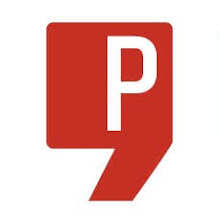 |
| Google Impact Challenge Awards |
Google certainly thinks so –last week we saw Richard Branson announced the winners of their Google Impact Challenge, which asked UK charities to “change the world through innovative technology”.
The answers were impressive. The finalists included: smart glasses for people with sight loss (RNIB), data analytics to keep young people off the streets (Centrepoint) and an online hub helping ex-offenders transition back into the community (St. Giles Trust).
Other finalists helped young people through an online platform to help separating parents avoid disputes (Relate), and through digital games to help young people with their mental health (We Are What We Do).
The four winners received £500k and the six runner ups received £200k to respectively develop their tech solutions.
At Poached we’re excited by the potential of tech to meet the needs of a wide range of vulnerable people, especially young people. We recently held our own (much smaller!) search for digital solutions by hosting a mental health forum - in partnership with Mediorite - looking for digital solutions to help young people with their mental health.
The forum was inspired by the need for immediate help for young people with mental health problems without access to services, or needing services out of hours – an increasing problem due to government cuts in this area. Digital is naturally 24/7, and the domain of young people:
“Young people live in a digital world, and if we don’t engage with them on that level, we fail to engage with them.” said Billy Dann from Comic Relief UK and the Innovation Labs initiative, who attended the forum.
Other attendees included local youth charities Off Centre, Art Against Knives and Streets of Growth, as well as Prince's Trust and Childline.
What we lacked in £millions and Richard Branson we made up for in spirited discussion and local partnership building!
We discussed problems like the ‘postcode lottery’ of mental health services and the stigma of talking about mental health, and how digital solutions can help overcome these problems. Several organisations agreed to work together through ‘live partnership brokering’; helpful online resources like Mindfull and MindEd were shared, and new ideas like a website bringing together all mental health campaigns were put forward.
We made change by gathering over 100 petition signatures at the event alone for ‘properly funding children and young people’s mental health services’, and many more online.
Whether working nationally or in your own backyard, with young people or another vulnerable group; tech can help make the difference.



No comments:
Post a Comment